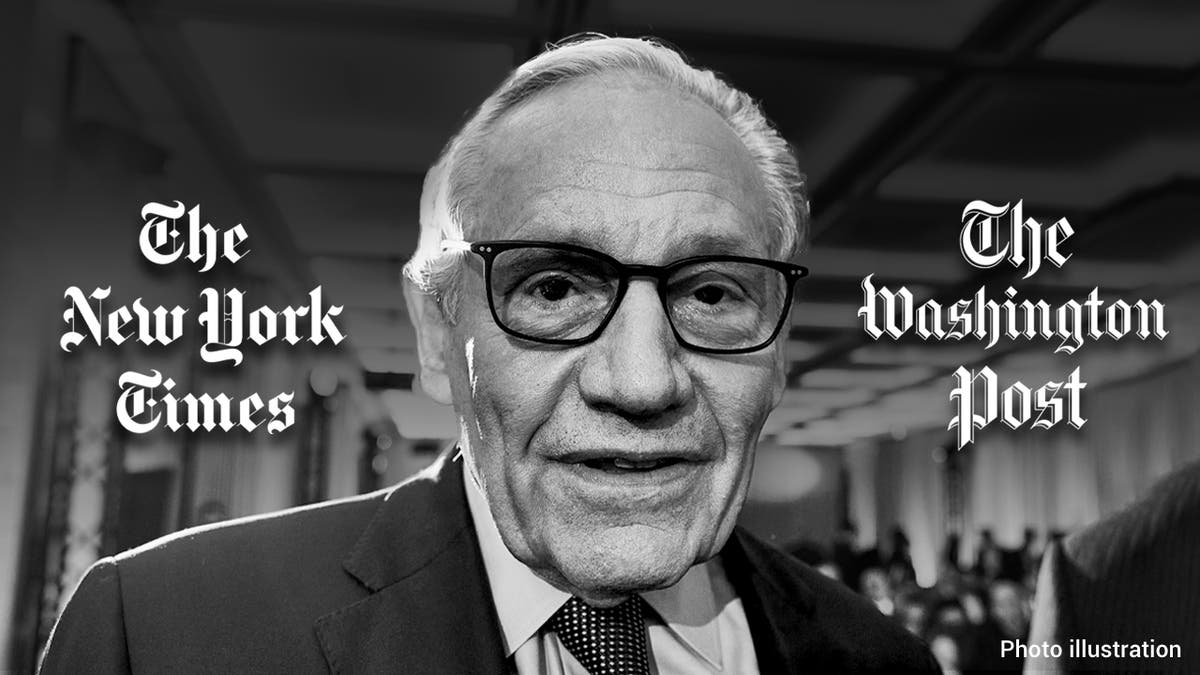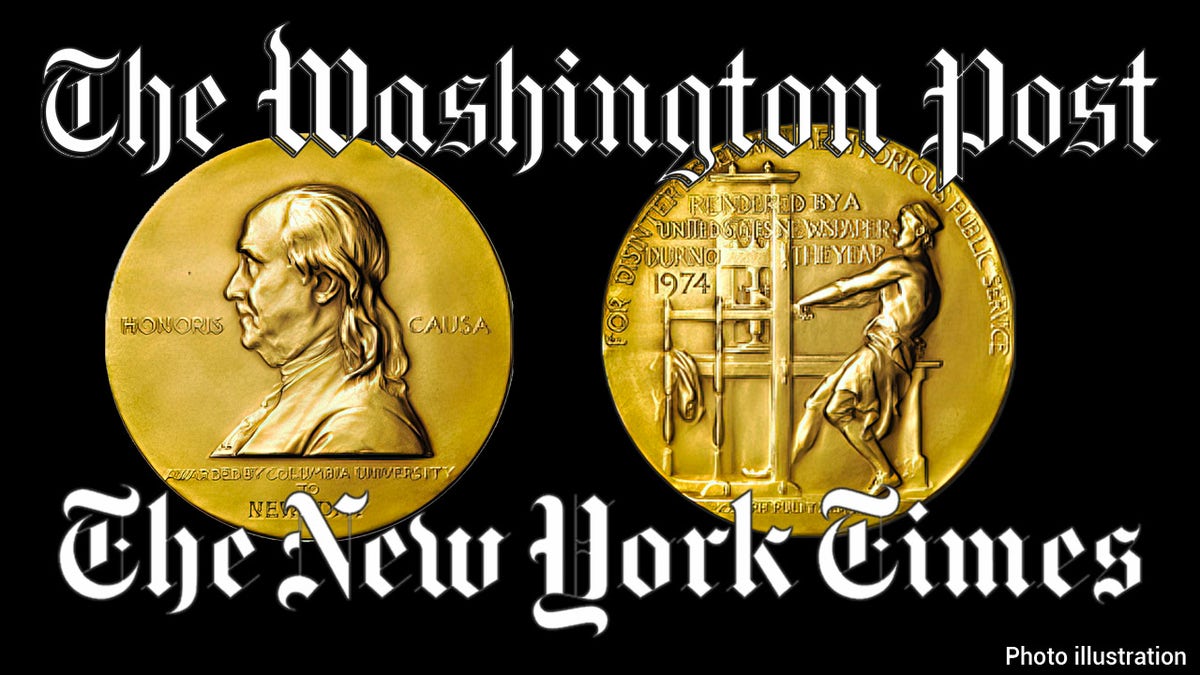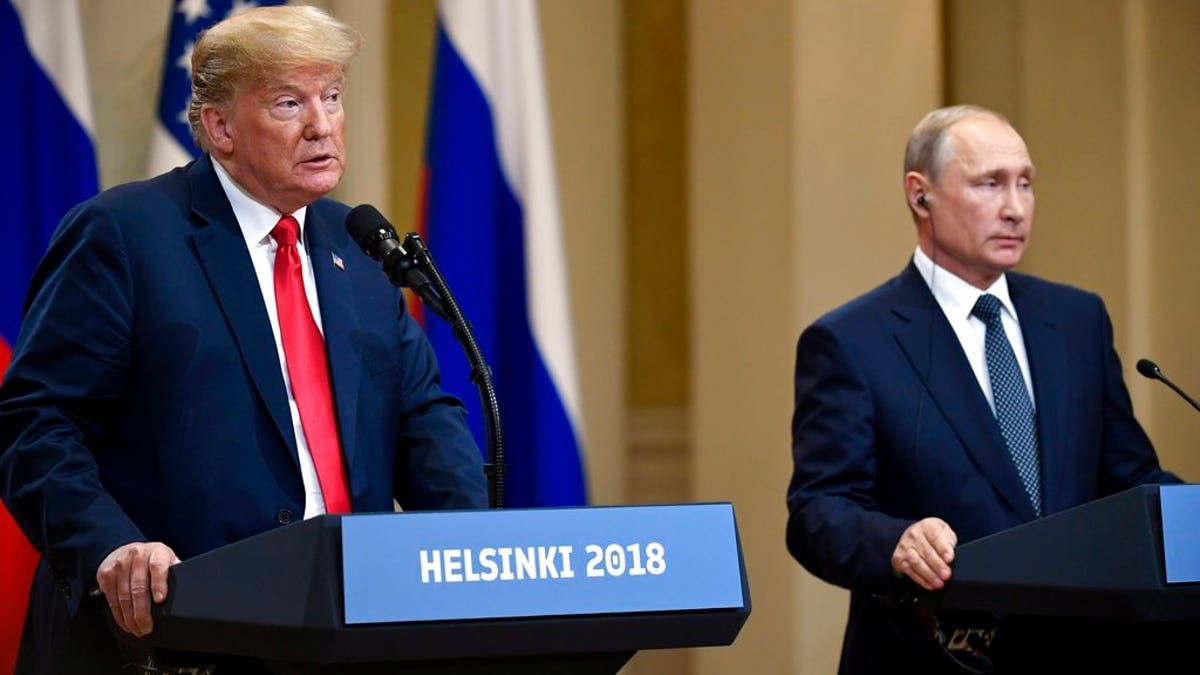Bob Woodward slams Washington Post for ignoring warnings about Russiagate
Washington Times' Charlie Hurt says the mainstream media made 'absurd' claims, and 'The Five' co-host Jessica Tarlov says journalists should have consulted with Woodward on his warnings.
The former New York Times reporter who authored a blistering report on the media's handling of Russiagate doesn't have much confidence in the industry to learn from its myriad errors.
"There is a lack of accountability and transparency in today’s media," Jeff Gerth told independent journalist Matt Taibbi. "The trend has accelerated due to the abandonment of public editors at outlets like the Times and the Post, as well as the shifting revenue models that create tighter, reinforcing loops between subscribers and news organizations."
"There isn't much you can do about bad journalism except change the channel, write a comment to a faceless person that may or may not get addressed, or toss the newspaper in the trash," he added.
Gerth's lengthy, four-part report for the Columbia Journalism Review featured on-the-record interviews with numerous figures embroiled in Russiagate, including former President Trump, but he said most of the key reporters – who won Pulitzers, TV contributorships and book deals thanks to the saga – didn't want to talk to him about what went wrong in the collusion saga.

Bob Woodward called on the media to engage in "introspection" over its Russiagate reporting.
RASKIN SLAMS DURHAM PROBE AS A ‘TOTAL FLOP,’ ASKS WEAPONIZATION SUBCOMMITTEE TO INVESTIGATE ORIGINS
Veteran journalist Bob Woodward told Gerth that viewers and readers should feel "cheated" by the coverage of Russiagate, which featured breathless stories and seemingly endless news cycles pointing to Trump being guilty of coordinating with the Russians to fix the 2016 election. But years of investigation and hundreds of thousands of articles later, the Mueller probe concluded there was no evidence any such collusion occurred. But stories and theories that propped up that narrative singularly dominated the news landscape for more than two years.
Gerth, who worked at the Times for nearly 30 years, said he was "not optimistic" that newsrooms would undergo the "introspection" Woodward recommended after the story had ended with a thud.
"As for soul-searching by newsrooms, which is what Bob Woodward called for, I am not optimistic, for several reasons. One is the sheer passage of time," Gerth said. "In addition, the Post and the Times both dropped their public editors and the US, unlike the United Kingdom or Australia, does not have any kind of government ombudsman. As for constituencies that might have influence on newsrooms, such as readers/viewers or shareholders, there is a noticeable lack of concern."
Gerth said he chose the Times and Post in particular for his report because they broke much of the "news" around Russiagate and the sprawling Mueller investigation. He added his concern with credibility in journalism was a motivator in taking on the behemoth project.

The Pulitzer Prize Board has stood by its 2018 National Reporting prizes given to The New York Times and Washington Post for coverage of alleged collusion between the Trump campaign and Russia. (Photo illustration)
One of his chief criticisms in his CJR report was with the reliance by the Times and Post on anonymous sources, leaving readers to wonder whether the voices bolstering the stories had their own agenda. As it turned out, the founders of Fusion GPS – the Clinton-hired research firm that commissioned the discredited Christopher Steele dossier, which in turn used a Democrat as one of its suppliers of information – served as anonymous sources at times for those outlets.
"The proliferation of anonymous sources has long been a thorny problem for journalists," Gerth said, adding it had led to a relaxation of standards. "The founders of Fusion GPS, both former reporters, were anonymous sources for many news outlets. Reporters used their information for negative stories about Trump, but they didn't report that the information came from researchers hired by Democratic opponents."
Fusion was paid a little over $1 million by Hillary Clinton campaign attorney Marc Elias' law firm Perkins Coie for its work, according to the Washington Post, and paid Steele about $168,000 for his work. The John Durham probe later revealed one of Steele's sources was Clinton backer Charles Dolan, creating a Democratic feedback loop. While an Inspector General report later declaring it was deeply flawed and at times contained outright falsehoods, figures at CNN and MSNBC hyped that it was never disproven.
Taibbi himself ripped into the New York Times and Washington Post for "self-mythologizing," pointing to one moment where the Times invited a documentary crew from Showtime to have behind-the-scenes access. Times editors and reporters were filmed discussing a piece that was later refuted by then-FBI Director James Comey in 2017, "Trump Campaign Aides Had Repeated Contacts With Russian Intelligence."

U.S. President Donald Trump speaks as Russian President Vladimir Putin listens during a join press conference at the Presidential Palace in Helsinki, Finland, Monday, July 16, 2018. (Antti Aimo-Koivisto/Lehtikuva via AP) (Lehtikuva)
Washington bureau chief Elisabeth Bumiller predicted there would be "hair on fire" over the story, with then-executive editor Dean Baquet calling it "the biggest story in years." But, as Gerth wrote, it turned out to be wrong, with even then-FBI agent and staunch Trump foe Peter Strzok saying in private notes at the time that they were unaware "of any Trump advisers engaging in conversations with Russian intelligence officials."
"This is the journalistic equivalent of Captain Edward Smith inviting cameras to record him snoring away as his Titanic drives into an iceberg," Taibbi wrote of the embarrassing episode.
Gerth's lengthy work has received scant attention in liberal media, but New York Magazine's Jonathan Chait and Mother Jones' David Corn both criticized it as too favorable to Trump.
CLICK HERE TO GET THE FOX NEWS APP
Chait, who admitted to thinking the Steele dossier would be proven mostly correct, said "the investigation produced extensive evidence of misconduct." In 2018, he was invited on MSNBC to discuss his piece that theorized Trump had been a Russian asset since 1987.
Corn, another fervent Russiagate proponent, argued, "Gerth ends up bolstering Trump’s phony narrative that there was no Russia scandal, just merely a hoax whipped up by reckless reporters and Trump’s enemies in the press, with the assistance of the Deep State."
